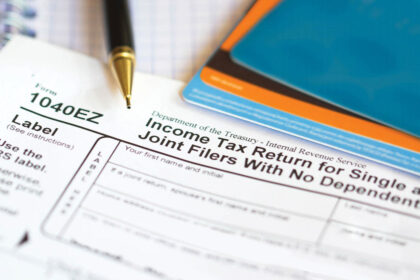Travel clubs can be a great way to save money on vacations, but there are also many scams out there that target travelers. In this article, we will discuss some of the most common travel club scams and how to avoid them.
What are Travel Clubs?
Travel clubs are organizations that offer members discounts on travel-related products and services, such as hotels, flights, and cruises. They typically charge an annual membership fee, and members are then able to book trips through the club at lower rates than they would be able to find on their own.
How do Travel Club Scams Work?
Travel club scams typically involve high-pressure sales tactics and misleading advertising. Scammers may promise members exclusive discounts that are not actually available, or they may charge exorbitant membership fees and renewal rates. In some cases, scammers may even sell fake vacation packages or fail to deliver the services they promise.
Common Travel Club Scams
There are a number of common travel club scams that travelers should be aware of. Some of the most prevalent scams include:
- False promises of exclusive discounts: Scammers may claim that their club offers members exclusive discounts that are not actually available.
- Inflated membership fees: Scammers may charge exorbitant membership fees that are much higher than the value of the discounts they offer.
- High renewal rates: Scammers may charge high renewal rates for club memberships, making it difficult for members to break even.
- Fake vacation packages: Scammers may sell fake vacation packages that are not actually available.
- Failure to deliver promised services: Scammers may fail to deliver the services they promise, such as hotel reservations or flight tickets.
- Bogus referral programs: Scammers may entice people to join their club by offering them referral bonuses that they never pay out.
- Bait-and-switch tactics: Scammers may advertise low-cost travel packages, but then switch the booking to a higher-priced package without the customer’s knowledge or consent.
- Hidden fees and surcharges: Scammers may charge hidden fees and surcharges that are not disclosed upfront.
- Fake travel agents: Scammers may pose as legitimate travel agents in order to scam unsuspecting victims.
- Fake reviews and testimonials: Scammers may create fake reviews and testimonials to make their club look legitimate.
How to Protect Yourself from Travel Club Scams
There are a number of things that travelers can do to protect themselves from travel club scams:
- Do your research: Before joining a travel club, do your research to make sure it is legitimate. Check online reviews and reports from consumer protection agencies.
- Beware of high-pressure sales tactics: If you feel pressured to join a travel club, walk away. Legitimate travel clubs do not use high-pressure sales tactics.
- Read the fine print: Before signing up for a travel club, carefully read the membership agreement and understand the terms and conditions.
- Avoid paying by credit card: If you must pay for a travel club membership, avoid paying by credit card. This will make it more difficult to dispute a charge if you are scammed.
- Be skeptical of promises of exclusive discounts: If a travel club promises exclusive discounts that are not available elsewhere, be skeptical.
- Do not pay for anything upfront: Legitimate travel clubs do not require members to pay for anything upfront.
- If you are concerned about a travel club, contact your state attorney general’s office: Your state attorney general’s office can help you investigate the club and take action if it is found to be operating illegally.
What To Do If You Have Been Scammed by a Travel Club:
If you have been scammed by a travel club, it’s important to take action immediately to protect your financial interests and prevent further harm. Here are some steps you can take:
- Contact your credit card company or bank: If you paid for the travel club membership with a credit card, you may be able to file a dispute with your credit card company or bank. Explain that you were scammed and request a chargeback. This will reverse the charge and you won’t be held responsible for the fraudulent payment.
- Report the scam to the Federal Trade Commission (FTC): The FTC is a government agency that protects consumers from fraud and other scams. You can file a complaint online at https://reportfraud.ftc.gov/ or by calling the FTC at 1-877-FTC-HELP (382-4357). Your complaint will help the FTC track and investigate travel club scams.
- Report the scam to the Better Business Bureau (BBB): The BBB is a non-profit organization that reviews and rates businesses. You can file a complaint online at https://www.bbb.org/scamtracker or by calling the BBB at 1-800-955-5100. The BBB’s records can help warn other consumers about potential scams.
- Document the scam: Keep records of all communication with the travel club, including any emails, letters, or phone calls. Save any brochures, contracts, or promotional materials you received from the club. This documentation will be helpful if you need to file a lawsuit or pursue other legal action.
- Consider legal action: If you have lost a significant amount of money due to the scam, you may want to consult with an attorney. An attorney can help you understand your legal options and pursue compensation for the damages you have suffered.
Remember, it’s not your fault if you’ve been scammed. Travel club scams are unfortunately common, and they can target even the most savvy consumers. By taking action promptly and following these steps, you can protect your financial interests and hopefully prevent others from falling victim to the same scam.
Conclusion
Travel club scams can be costly and frustrating, but by being aware of the risks and taking steps to protect yourself, you can avoid becoming a victim. By doing your research, being skeptical, and reading the fine print, you can ensure that you are getting the best value for your money and having a safe and enjoyable travel experience.


















